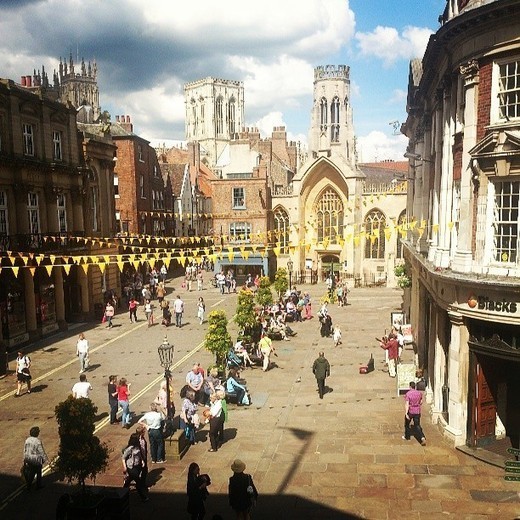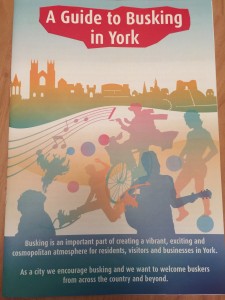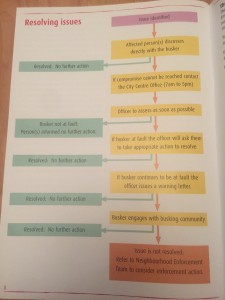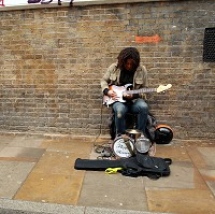York welcomes buskers with new guidance designed to promote harmony on the streets

York City Council have followed on from Liverpool to become the second major UK city to adopt new collaborative guidelines for busking. The Council worked closely with the local busking community, the Musician’s Union, the Keep Streets Live Campaign and local businesses to produce a document designed to encourage and welcome buskers from all over the world.
You can read an online version of ‘A Guide to Busking in York’ by clicking on the following link: A Guide to Busking in York-print artwork
‘A Guide to Busking in York’ is very different in tone and content from busking policies in many UK towns and cities, which all too often see busking as a potential problem to be managed and restricted, rather than as a grassroots cultural activity to be celebrated. York’s new approach recognises that the busking tradition is characterised by informality, spontaneity and democratic access to public space. The new guidelines replace a cumbersome and coercive regime where the local authority used to charge buskers for permits and hold auditions. Once upon a time, buskers without permits were moved on and many would-be performers were turned away because the system of obtaining a license and attending an audition put people off from coming to York to perform. Until an online petition was started by the Keep Streets Live Campaign. It was signed by over 4000 people and called on York to scrap their restrictive policy and work with the busking community to produce new guidance. The new guidelines are the result of that successful campaign and replaces the old permit and audition system.
Now, no ‘license’, ‘permit’ or audition is required to busk in York. Instead, ‘A Guide to Busking In York’ sets out some simple principles for buskers based upon common sense, consideration and good will. The guidance also sets out practical steps for resolving potential issues between buskers and others who share public space in the city before problems have a chance to escalate. This new approach safeguards spontaneity, whilst allowing appropriate action to be taken whenever issues do arise.
York have also taken the welcome step of publishing a condensed guidance document aimed specifically at city centre businesses and residents to help them resolve any busking-related issues amicably and to explain the busking guidance clearly. It asks those who may have an issue with a busking performance to politely speak to the busker themselves and reach a compromise before making a formal complaint. Most situations can be resolved in this way. For those that can’t be, a council officer will attend and assess the situation. If the busker is deemed to be at fault and the issue persists then the busker can ultimately face enforcement action but this will only ever be as a last resort. You can follow this link to see an online copy of the guidance document aimed at businesses: York Busking Guidance businesses – final
York’s new guidance for busking further enhances its deserved reputation as one of the UK’s leading cultural cities. Importantly, the new policy safeguards the spontaneity and informality that are key to the busking tradition, which will help to attract high quality busking acts from all over the world and animate the city’s streets. The new guidelines have removed unnecessary and costly bureaucracy and stand in direct contrast to regressive approaches in other places, such as: Camden’s coercive license regime and Oxford City Council’s ill-thought out proposals to use draconian ‘Public Space Protection Orders’ to criminalise ‘non-compliant’ buskers.
By drawing up busking guidance alongside the Musician’s Union, Equity, the Keep Streets Live Campaign, local buskers and businesses, York Council have pioneered a radically different, collaborative approach to the oversight of street culture, setting a high standard for cultural policy that other towns and cities in the UK and beyond would do well to follow.






